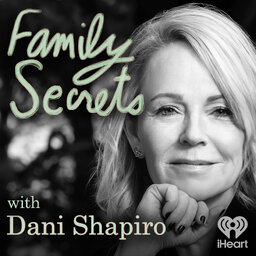The Big Feelings
David Ingber is a spiritual leader and father of three young kids, beloved by his large New York City Congregation. His wisdom and ability to comfort is sought after by thousands. In this episode, he learns that opening up and allowing himself to show his own vulnerability is part of his teaching and a great spiritual lesson.
Learn more about your ad-choices at https://www.iheartpodcastnetwork.com
 Family Secrets
Family Secrets


